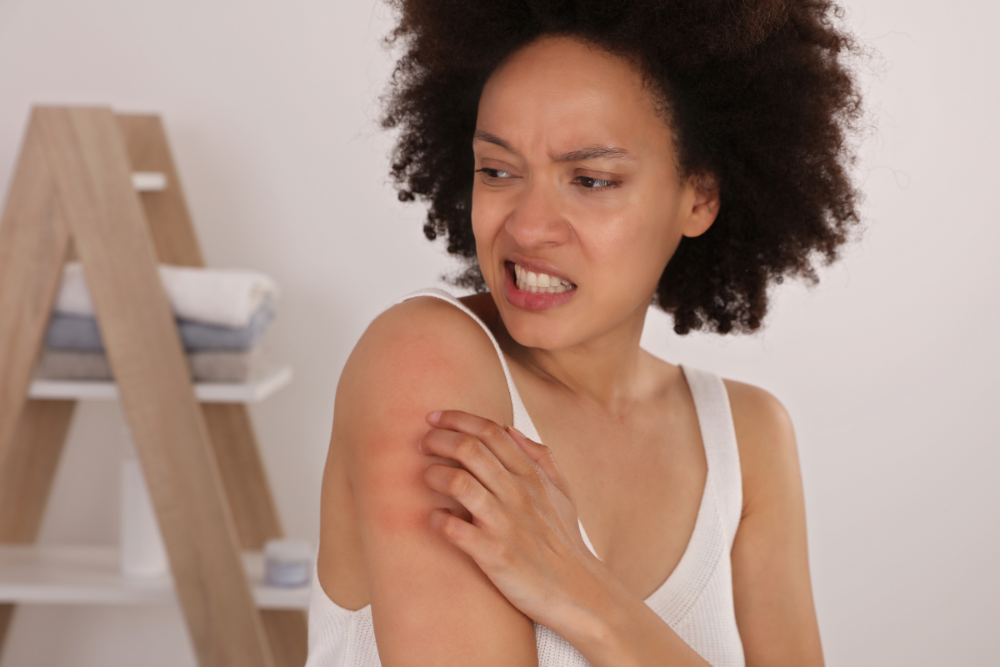Dealing with thrush itching can be an uncomfortable experience. Whether it’s vaginal thrush, caused by the overgrowth of Candida albicans, or other types of vaginal yeast infections, the persistent itching and discomfort can significantly impact daily life. However, finding relief is possible with the right strategies and remedies.
In this guide, we explore effective tips and techniques to treat yeast infections like thrush. From natural remedies to over-the-counter options, we’ll cover everything you need to know, including “how to soothe thrush itching immediately” and prevent recurrent thrush.
Understanding Thrush
What is thrush? Well, vaginal thrush, also known as vaginal candidiasis, is a common yeast infection characterised by vaginal itching, burning, and abnormal vaginal discharge. It occurs when there’s an overgrowth of a yeast called Candida albicans in the vaginal area. Vaginal thrush is a common condition among women, and although it is not considered a sexually transmitted infection, factors such as sexual intercourse and changes in vaginal pH can contribute to its development.
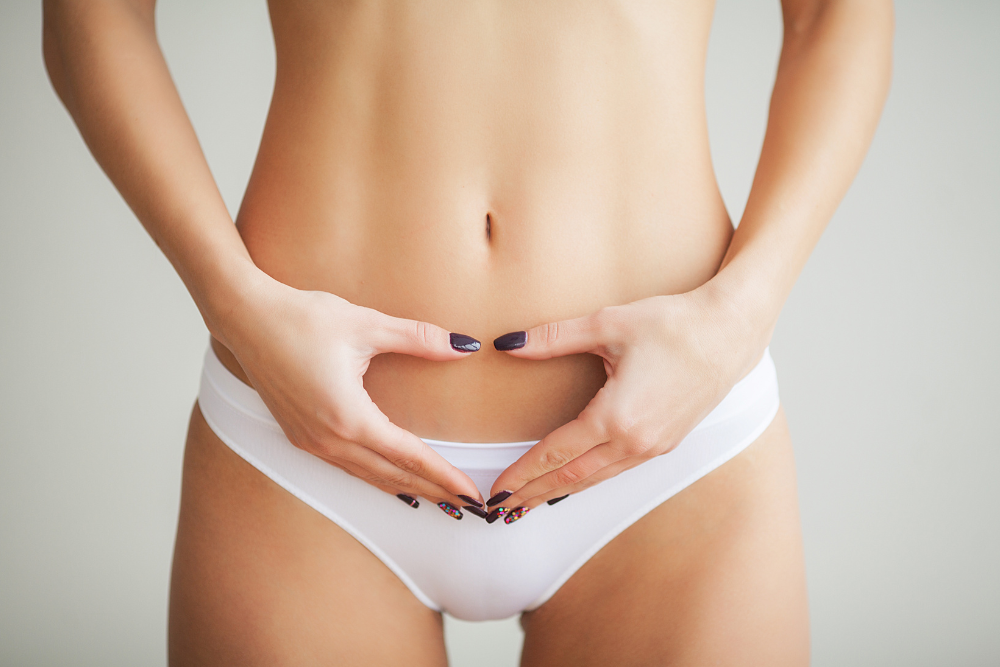
Natural Remedies
When it comes to relieving the discomfort of thrush itching, natural remedies can offer gentle yet effective relief.
Yoghurt
Probiotic-rich yoghurt contains beneficial bacteria that can help rebalance the natural flora in the body, potentially reducing the overgrowth of yeast that causes thrush. Apply plain, unsweetened yoghurt topically to the affected area for soothing relief.
Coconut Oil
Coconut oil has antifungal properties and can help soothe itching and irritation caused by thrush. Apply virgin coconut oil topically to the affected area several times a day for relief.
Tea Tree Oil
With its antifungal and antibacterial properties, tea tree oil can help treat yeast infections and ease itching. Dilute tea tree oil with a carrier oil, such as coconut oil, and apply it topically to the affected area for relief.
Probiotics
Incorporating probiotic-rich foods into your diet, such as yoghurt, kefir, and sauerkraut, can help maintain a healthy balance of bacteria in the body, potentially reducing the risk of thrush. Also, consider taking probiotic supplements to support gut health and immunity.
Warm Bath with Apple Cider Vinegar
Adding apple cider vinegar to a warm bath can help restore the pH balance of the skin and inhibit the growth of yeast. Soak in the bath for 15-20 minutes to soothe itching.
Cranberry Juice
Cranberry juice contains compounds that may help prevent the adherence of yeast to the mucous membranes, potentially reducing the risk of thrush. Drink unsweetened cranberry juice regularly to support urinary tract health and potentially prevent recurrent thrush infections.
By incorporating these natural remedies into your routine, you can effectively soothe thrush itching and promote healing without harsh chemicals or medications.
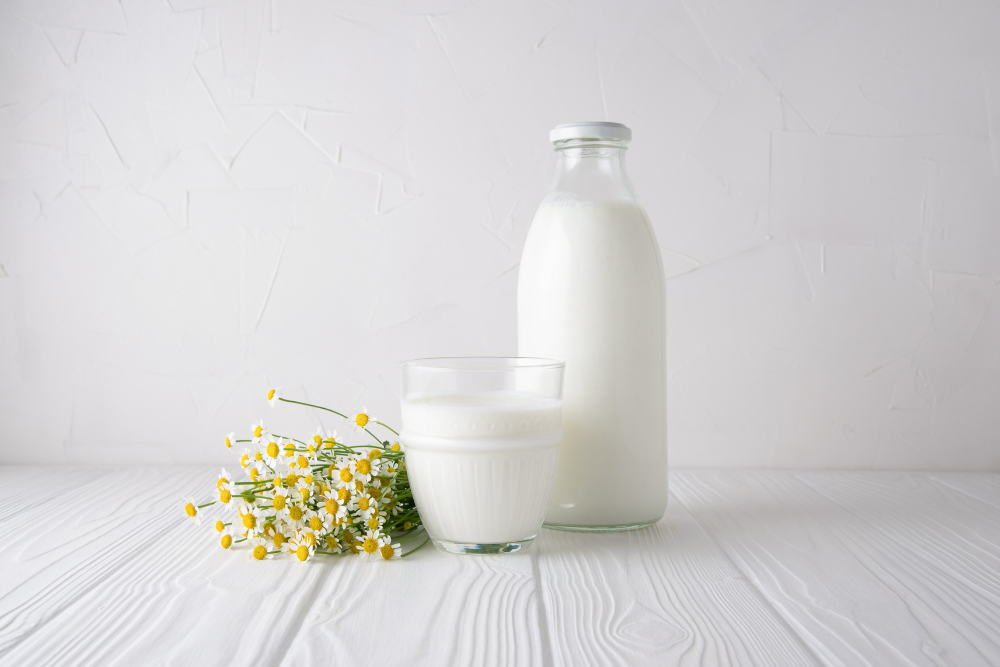
Avoiding Irritants
As well as seeking relief through natural remedies, it’s essential to identify and avoid potential irritants that can worsen thrush symptoms.
Tight-Fitting Clothing
Tight-fitting clothing, especially synthetic fabrics like nylon and polyester, can trap moisture and heat, creating an ideal environment for yeast to thrive. Opt for loose-fitting, breathable clothing made from natural fibres like cotton to promote airflow and reduce moisture buildup.
Scented Products
Avoid using scented soaps, bubble baths, and feminine hygiene products, as these may contain chemicals and fragrances that can disrupt the delicate balance of bacteria in the vaginal area and contribute to thrush. Opt for unscented or hypoallergenic alternatives instead.
Certain Foods
Some foods can promote the growth of yeast in the body, potentially worsening thrush symptoms. Limit your intake of sugary foods and beverages, refined carbohydrates, and alcohol, as these can fuel yeast overgrowth. Instead, focus on a balanced diet rich in whole grains, lean proteins, fruits, and vegetables.
Harsh Chemicals
Household cleaning products, laundry detergents, and personal care products containing harsh chemicals can irritate the skin and disrupt the natural balance of bacteria, increasing the risk of thrush. Choose mild, fragrance-free products formulated for sensitive skin to minimise irritation.
Antibiotics
Antibiotics can disrupt the natural balance of bacteria in the body, leading to an overgrowth of yeast and heightened risk of thrush. Whenever possible, avoid unnecessary or prolonged use of antibiotics, and discuss alternative treatment options with your healthcare provider.
Hormonal Changes
Fluctuations in hormone levels, such as those experienced during pregnancy, menstruation, or menopause, can alter the pH balance of the vagina and make you more susceptible to thrush. Practise good hygiene and consider using pH-balanced feminine hygiene products to reduce the risk of irritation.
Stress
Chronic stress can weaken the immune system and disrupt the body’s natural defences against infections, including thrush. Practice stress-reduction techniques such as deep breathing, meditation, yoga, or tai chi to promote relaxation and support overall health.
By being mindful of these potential irritants and making necessary adjustments to your lifestyle and routine, you can help reduce the frequency and severity of thrush symptoms.

Proper Hygiene
Maintaining proper hygiene is key to managing thrush itching and preventing its recurrence. By following good hygiene practices, you can help keep the vaginal area clean and reduce the risk of irritation and infection.
Gentle Cleansing
When washing the vaginal area, use a mild, unscented soap and warm water. Avoid harsh soaps, douches, and feminine hygiene products that can disrupt the natural pH balance and irritate the delicate skin of the vagina.
Front to Back Wiping
Always wipe from front to back after using the toilet to prevent the spread of bacteria from the anus to the vaginal area. This simple practice can help reduce the risk of urinary tract infections and vaginal infections, including thrush.
Pat Dry
After washing or using the toilet, gently pat the vaginal area dry with a clean, soft towel. Avoid rubbing or using abrasive materials, as this can cause irritation and discomfort.
Change Underwear Regularly
Moisture and warmth can create an ideal environment for yeast to thrive, so changing your underwear regularly is essential, especially if they become damp or sweaty. Choose breathable cotton underwear that allows air circulation and helps keep the vaginal area dry.

Launder Clothing Properly
Wash underwear and other clothing items that come into contact with the vaginal area in hot water and mild detergent. Avoid using fabric softeners and harsh chemicals that can irritate the skin.
Practice Safe Sex
If you’re sexually active, use condoms consistently and correctly to reduce the risk of sexually transmitted infections (STIs) and prevent the spread of bacteria and yeast. Additionally, consider washing the genital area before and after sexual activity to maintain cleanliness.
Avoid Sharing Personal Items
To prevent the spread of bacteria and yeast, avoid sharing personal items such as towels, washcloths, and underwear with others. These items can harbour bacteria and contribute to the development of infections.
By incorporating these simple yet effective hygiene practices into your daily routine, you can help maintain the health and cleanliness of the vaginal area and reduce the risk of thrush itching and discomfort.
Soothing Creams
Soothing creams can provide immediate relief from thrush itching and discomfort by calming irritated skin and reducing inflammation. Available over-the-counter, these creams often contain ingredients with antifungal and anti-inflammatory properties to target the underlying cause of thrush.
Antifungal Creams
Over-the-counter antifungal creams can effectively treat thrush by killing the yeast responsible for the infection. These creams are typically applied directly to the affected area and can provide rapid relief from itching and irritation.
Hydrocortisone Creams
Hydrocortisone creams are mild corticosteroids that can help reduce inflammation and itching associated with thrush. While they do not treat the underlying fungal infection, they can provide temporary relief from discomfort. It’s important to use hydrocortisone creams sparingly and according to the manufacturer’s instructions to avoid potential side effects.
Barrier Creams
Barrier creams create a protective barrier over the skin, helping to soothe irritation and prevent further moisture loss. Ingredients such as zinc oxide or petroleum jelly can provide relief from itching and discomfort while promoting healing. These creams are beneficial for soothing irritated skin in the vaginal area.
Calamine Lotion
Calamine lotion contains zinc oxide and iron oxide, which have a soothing and drying effect on irritated skin. While not specifically designed to treat thrush, calamine lotion can help alleviate itching and reduce inflammation caused by the infection. Apply a thin layer of calamine lotion to the affected area as needed for relief.
When using soothing creams to alleviate thrush symptoms, it’s essential to follow the manufacturer’s instructions carefully and avoid overuse. If your symptoms persist or worsen despite using these creams, consult a healthcare professional for further evaluation and treatment.
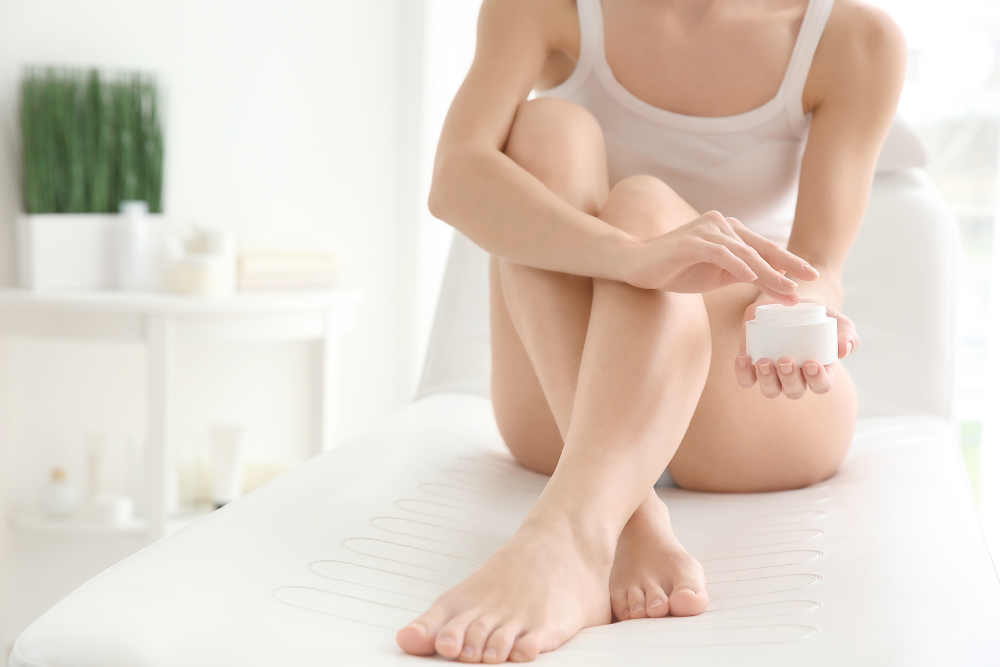
Lifestyle Changes
Certain lifestyle changes can play a big role in managing thrush symptoms and reducing the risk of recurrent infections. By adopting healthier habits and avoiding certain triggers, you can support your body’s natural defences and promote overall well-being.
Balanced Diet
A balanced diet rich in fruits, vegetables, whole grains, and lean proteins can help strengthen the immune system and reduce the risk of thrush. Limiting the intake of sugary foods and refined carbohydrates can also help prevent yeast overgrowth, as sugar can fuel the growth of yeast in the body.
Stay Hydrated
Drinking adequate water throughout the day can help flush out toxins from the body and maintain proper hydration levels. Aim to drink at least eight glasses of water per day to support overall health and reduce the risk of thrush.
Manage Stress
Chronic stress can weaken the immune system and increase susceptibility to infections, including thrush. Practice stress-reduction techniques such as meditation, deep breathing, yoga, or mindfulness to promote relaxation and support overall health.
Limit Antibiotic Use
Antibiotics can disrupt the natural balance of bacteria in the body, increasing the risk of thrush and other infections. Whenever possible, avoid unnecessary or prolonged use of antibiotics, and discuss alternative treatment options with your healthcare provider.
Quit Smoking
Smoking can weaken the immune system and increase susceptibility to infections, including thrush. If you smoke, consider quitting smoking to improve your overall health and reduce the risk of thrush and other health problems.
By incorporating these lifestyle changes into your daily routine, you can help reduce the frequency and severity of thrush symptoms and support your body’s natural defences against infections.
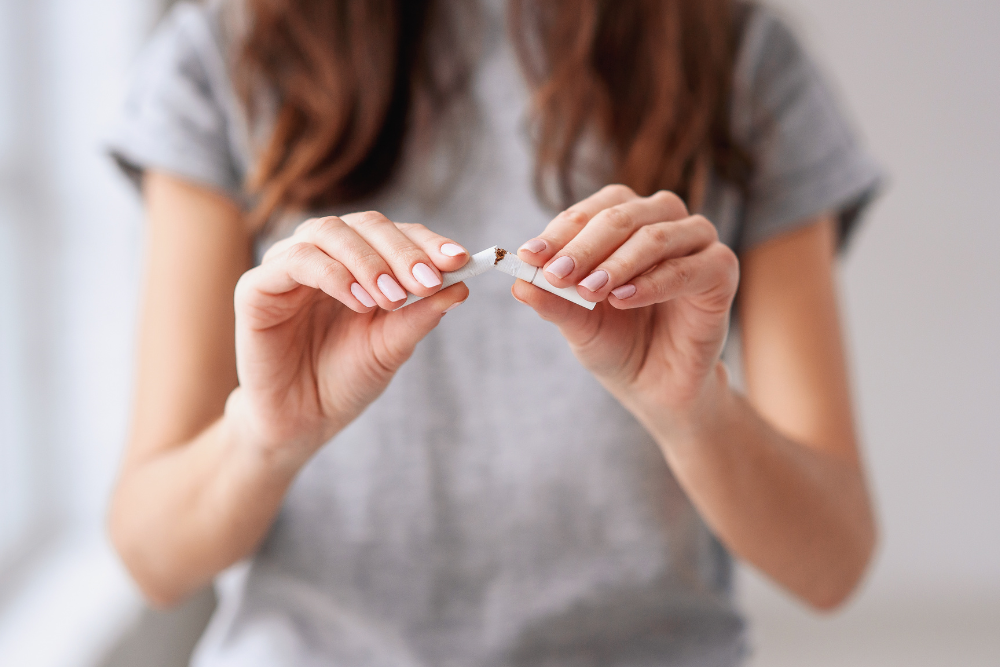
Over-the-Counter Options
Over-the-counter (OTC) treatments offer convenient and accessible options for managing thrush itching and discomfort. These products are readily available at pharmacies and can help alleviate symptoms while providing relief from the discomfort associated with thrush.
OTC Antifungal Creams
Antifungal vaginal cream is widely available without a prescription. These creams work by killing the yeast responsible for thrush and can provide rapid relief from itching and irritation. Follow the instructions on the product label for proper application and duration of use.
Vaginal Antifungal Suppositories
Vaginal suppositories containing antifungal medications are another OTC option for treating thrush. These suppositories are inserted into the vagina using an applicator and work locally to combat yeast overgrowth and alleviate symptoms. Be sure to follow the instructions provided with the product for optimal results.
Antifungal Tablets
Some antifungal medications are available in tablet form and can be taken orally to treat thrush. These thrush tablets typically contain an active ingredient that works systemically to eliminate yeast overgrowth throughout the body. Follow the dosage instructions provided by your healthcare provider or on the product label.
Vaginal Antifungal Cream with Applicator
Some antifungal creams come with an applicator for easy and precise application into the vaginal canal. This allows the cream to reach the affected area directly, providing targeted relief from itching and discomfort. Follow the instructions provided with the product for proper use of the applicator.
When using over-the-counter options to treat thrush, follow the instructions provided with the product and consult a healthcare professional if you have any questions or concerns.
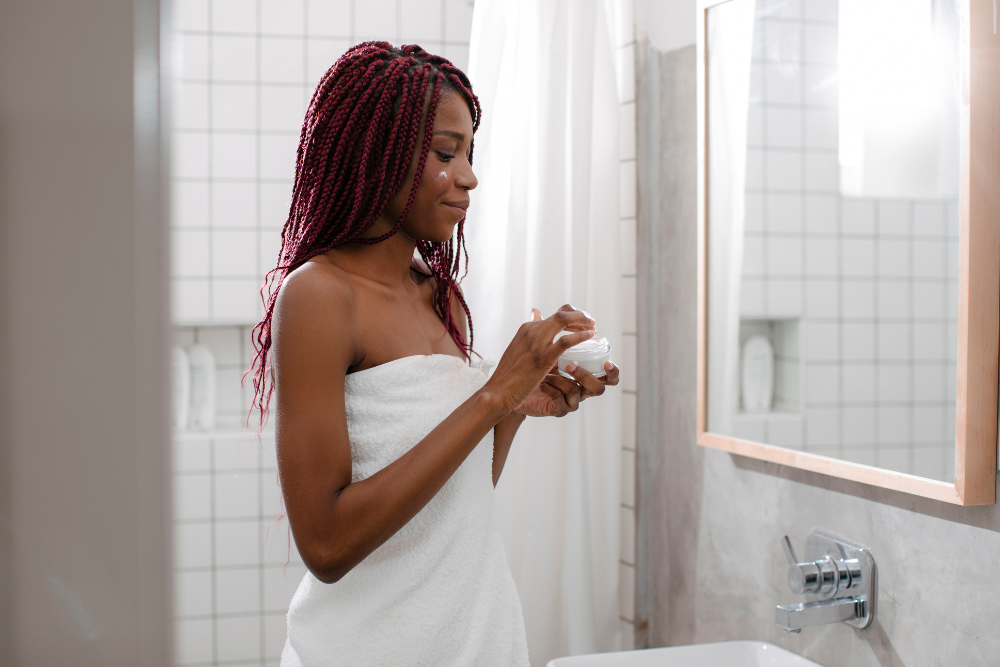
When to Seek Medical Help
While many cases of thrush can be effectively managed with over-the-counter treatments and home remedies, there are certain situations where it’s important to seek medical help. Consulting a healthcare professional can ensure proper diagnosis and treatment, especially if you experience severe symptoms or recurrent infections. Here are some signs that indicate the need for medical attention:
Severe or Persistent Symptoms
Recurrent Infections
Fever or Chills
Pregnancy
Immune System Disorders
Suspected STI
Abnormal Vaginal Bleeding

Preventing Future Discomfort
Prevention plays a key role in minimising the risk of recurrent thrush infections and associated discomfort. By adopting certain lifestyle habits and hygiene practices, you can help maintain a healthy balance of bacteria in the body and reduce the likelihood of vaginal yeast infection and even bacterial vaginosis. However, if you experience persistent or recurrent symptoms despite taking preventive measures, see your doctor or consult a healthcare professional for further evaluation and treatment.




